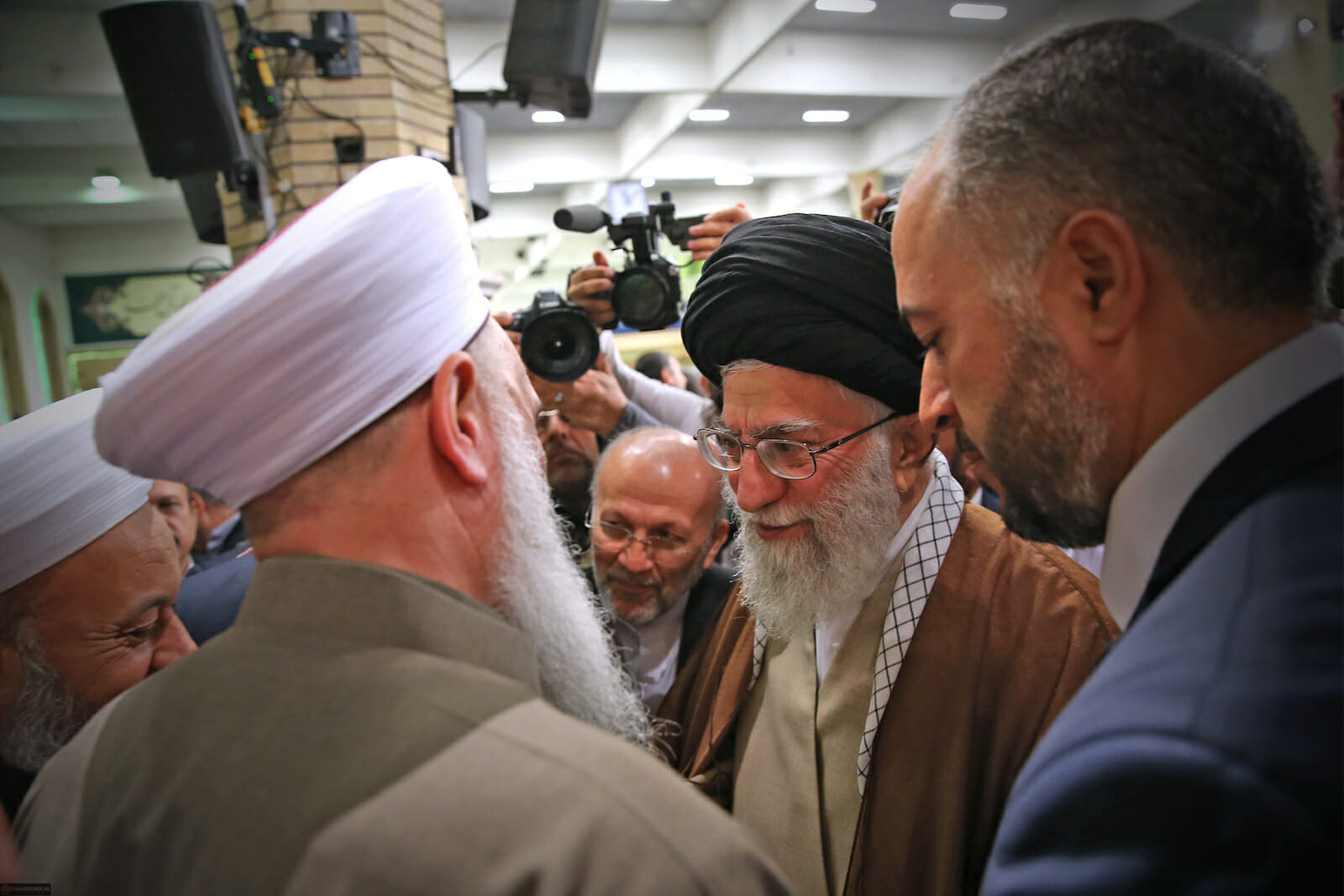
Why Iran will Compromise this Time
As we inch closer to the crucial nuclear talks between Iran and the world powers, the so-called P5+1, the primordial question is whether this time will be different: Is Tehran willing to make necessary compromises, from greater nuclear transparency to more stringent restrictions on its enrichment activities, to reverse the economic siege that is bringing the country close to the edge? Is she going to use the talks as a delaying tactic or will she finally strike a mutually-acceptable deal with the West?
From the perspective of the Iranian leadership, with sanctions beginning to squeeze the Iranian economy, atop intensifying threats of military invasion and a growing Western naval presence in the Persian Gulf, the nuclear impasse is worryingly morphing into a question of regime survival. Sure, the regime has significant resources – both financial and military – as its disposal to head-off growing international isolation, and pursue its nuclear program, but growing external pressure can affect the very foundation of Iran’s trillion-dollar industrializing economy. Moreover, growing economic uncertainty, compounding decades-long structural economic challenges, could also impact the country’s very social cohesion, amidst lingering discontent among certain quarters of the population.
This is precisely why this time could be different, and there are no shortages of diplomatic overtures on the part of Iran, signaling Tehran’s interest in resolving the crisis. If there is one thing that is consistent with the Islamic Republic of Iran, it is her undying instinct for self-preservation. Moreover, the Iranian regime is anything but monolithic: even within the upper echelons of the politico-military leadership, pragmatic forces have always sought to prevent any crisis or conflict, which would endanger the country’s territorial integrity. After all, the 1979 Iranian Revolution was nationalistic: its founding principles emphasized Iran’s territorial integrity and independence.
The Iranian regime is often characterized as a fundamentalist revisionist power, whose legitimacy, and very identity, is anchored on continued opposition to the West, especially Israel and the U.S. Its rationality is often questioned on the grounds that its core leadership is composed of messianic individuals, who don’t conform to the logic of survival and self-preservation. Some commentators, from American neo-conservatives to Israeli politicians, go as far as saying that she is willing to pursue her radical ideas, from the creation of a regional Islamic order to the destruction of Israel, even if it means self-abnegation. After all, she has purportedly endured three decades of sanctions and international isolation to stay true to her political beliefs and pursue her revolutionary principles. Following this line of argumentation, if the regime secures her grip on a nuclear device, or even a ‘break-out’ capacity, she will not hesitate to use it as a means to pursue radical ends.
By any measure, the Iranian regime is peculiar. On the issue of foreign policy, the Islamic Constitution describes a state that is bound by an internationalist-idealist Islamic doctrine. Contrary to the universal trend, there is no mention of the concept of ‘national interest’ – requiring a pragmatic and rational foreign policy –in the constitution, but instead articles 11, 152, and 154 describe a state that should pursue a much more revolutionary objective: the unity of the Islamic World (Umma) and the protection of the oppressed (Mostaza’fin) against tyrants (Mostakberin). In this sense, the Iranian constitution prescribes a foreign policy that is found on an essentially internationalist Islamic charter.
However, pessimists, who invest little faith in upcoming negotiations, tend to overlook the other side of the coin: the regime’s history clearly demonstrates how every period of ideological excess was counter-balanced by a succeeding period of moderation, reform, and realism. Why? Precisely because, even under the Islamic Republic, the instinct for self-preservation and the concept of expediency (Maslaha) has always trumped the sustenance of any kind of policy, which endangered the regime’s survival and the country’s territorial integrity. Currently, the nuclear issue is increasingly proving to threaten the regime’s survival.
Time and again, the Islamic Republic has shown its ability to follow a pragmatic logic, actually placing national security over revolutionary objectives. On the one hand, intent on preserving a cordial relationship with China, Russia, and Syria, Iran adopted a low-key position on the 1982 Syrian Islamic uprising, Muslim repression in Western China, and Chechen Islamic Separatist Movements and Serb-led reprisals against Muslim Bosnians in the 1990s. On the other hand, Iran was not only neutral in the 1991 and 2003 Gulf Wars against Iraq, but it also supported U.S.-led attacks against the Taliban regime in 2001.
Iran has also shown considerable ability for strategic learning and self-restraint. Faced with the prospect of external invasion and territorial defeat, the Iranian regime did not only agree to end the American hostage crisis in 1982, but it also signed the UN Security Council Resolution 598, which concluded the Iran-Iraq War. All these transpired at the height of Iran’s revolutionary zeal. After the war, under the leadership of the pragmatics, Iran invested heavily in normalizing relations with Arab countries and improving relations with Europe.
Later, during the reformist era in the early 2000s, Iran even agreed to halt its nuclear enrichment in order to prevent a military showdown with the Bush Administration. In all these cases, we can see how in actuality the Iranian regime has prioritized regime survival when faced with an existential dilemma. This bipolar tendency is a reflection of the Iranian state’s fundamentally dualistic character: simultaneously, both a Republican state (Jumhoori) bound by modern rationality and rule of law and a theocracy governed by Islamic principles and clerical supervision (Velayat-e-Faqih). The ebbs and flows of the Iranian foreign policy have been determined by this eternal struggle between the two pillars, Islamic and Republican, of the Iranian nation-state.
Also, almost all periods of foreign policy crisis, from the 1980 Hostage Crisis to the 2006 and 2009 breakdown in nuclear negotiations, were a product of constant jostling among competing for political factions. Today, Iran is firmly under the control of traditional conservatives, under the auspices of the Iranian Supreme Leader, Ayatollah Ali Khamenei. With the regime internally consolidated, it is clear with whom the West should deal.
Encouragingly, on three fronts Iran has indicated its willingness to compromise: first, the Supreme Leader has agreed to upcoming talks in Istanbul – followed by a second talk in Baghdad – and has even welcomed President Obama’s reticence about any military intervention; second, top government officials – from the head of the Iranian nuclear agency to the foreign minister – have indicated their willingness to consider more intensive inspections and cap enrichment levels; and lastly, powerful pragmatists, such as former President Akbar Hashemi-Rafsanjani, have called for direct talks with America and greater diplomatic flexibility to resolve the nuclear impasse. The fact that the West has expressed its respect for Iran’s right to enrichment provides us another reason for optimism.
The key to resolving the impasse is to assuage the Iranian regime concerns with regime survival. Nevertheless, resolving the Iranian nuclear crisis will ultimately necessitate sustained diplomacy and an arduous series of top-level negotiations, especially between Iran and the U.S.

